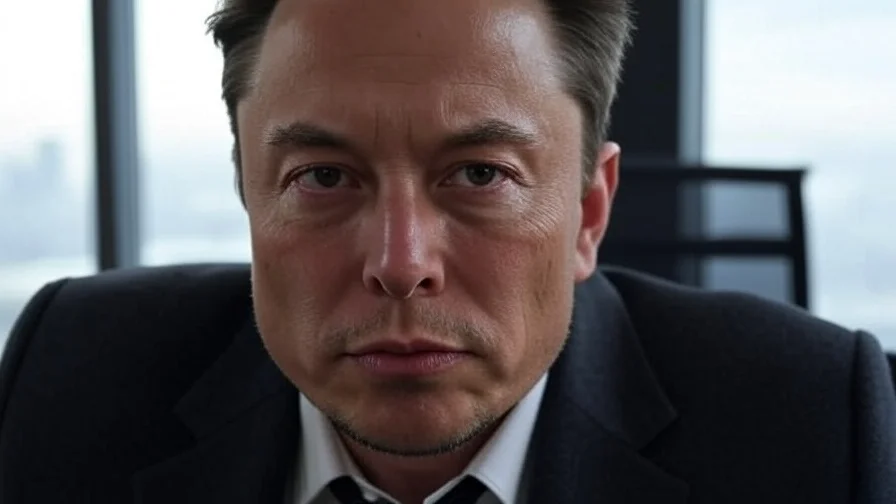Elon Musk’s latest feud targets Apple, accusing the tech giant of “rigging” the App Store to boost OpenAI’s ChatGPT while sidelining his Grok chatbot. With legal threats on the table and users fact-checking his claims, the clash pits one of tech’s most outspoken figures against Cupertino’s carefully curated AI ecosystem.
Key Takeaways
- Musk claims Apple’s App Store favors OpenAI’s ChatGPT over his Grok AI.
- X users cite examples of other AI apps hitting No. 1 post-Apple–OpenAI deal.
- The dispute comes as Apple faces wider antitrust scrutiny.
- OpenAI’s Sam Altman fires back, accusing Musk of similar platform manipulation.
Elon Musk is once again at the center of a tech-world storm — this time accusing Apple of stacking the App Store deck against him. On Monday, the billionaire entrepreneur announced plans to take legal action, alleging the company gives OpenAI’s ChatGPT preferential treatment while deliberately excluding his own Grok AI from prime App Store real estate.
“Apple is behaving in a manner that makes it impossible for any AI company besides OpenAI to reach #1 in the App Store, which is an unequivocal antitrust violation. xAI will take immediate legal action,” Musk posted on X.
Apple is behaving in a manner that makes it impossible for any AI company besides OpenAI to reach #1 in the App Store, which is an unequivocal antitrust violation.
— Elon Musk (@elonmusk) August 12, 2025
xAI will take immediate legal action.
The Tesla and SpaceX chief didn’t stop there. He questioned why Apple’s “Must-Have Apps” section leaves out both X (his social media platform) and Grok, even though, according to him, X is the world’s top news app and Grok ranks fifth among all apps.
In another jab, Musk insisted Grok’s omission from Apple’s “AI” category was blatant bias. “Grok is the smartest AI in the world on the toughest tests and just came first by far in coding, but is not mentioned at all under ‘AI’ by Apple!” he wrote.
X Users Push Back
But not everyone is convinced. X’s own Community Notes fact-checked Musk’s claims, pointing out that DeepSeek reached No. 1 overall in the App Store in January 2025 and Perplexity topped India’s charts on July 18, 2025 — both well after Apple and OpenAI’s partnership was announced in June 2024.
This public correction blunts Musk’s antitrust narrative, suggesting that other AI competitors have broken through despite ChatGPT’s prominence. Apple, meanwhile, declined to comment.
The OpenAI Rivalry Runs Deep
Musk’s grievance isn’t just about rankings — it’s personal history. He co-founded OpenAI in 2015 before leaving in 2018. Now, he’s suing the Microsoft-backed company and its CEO Sam Altman, claiming they abandoned their original mission to create AI “for the benefit of humanity.”
The rivalry has only intensified. Last Thursday, OpenAI unveiled GPT-5, touting it as its most advanced model yet. Just weeks earlier, xAI launched Grok 4. Both chatbots are competing for mindshare and market share in the fast-moving AI race.
Apple’s App Store currently features GPT-5 prominently at the top of its “Apps” section and lists ChatGPT as the only AI chatbot in its “Must-Have Apps” category.
Altman Fires Back
Sam Altman wasted no time responding to Musk’s accusations. In a pointed X post, he wrote:
“This is a remarkable claim given what I have heard alleged that Elon does to manipulate X to benefit himself and his own companies and harm his competitors and people he doesn’t like.”
The remark underscores how personal — and public — this fight has become.
A Perfect Storm of Legal and PR Risks
Musk’s threat comes as Apple is already under antitrust scrutiny from the U.S. Department of Justice, which last year accused the company of maintaining an iPhone monopoly. A June court ruling also barred Apple from forcing developers to use its payment system exclusively.
For Musk, this battle fits a familiar pattern — a high-stakes confrontation with powerful rivals. Whether it’s regulators, tech peers, or entire industries, he tends to frame these disputes as battles for fairness and innovation, even as critics accuse him of self-interest.
What’s clear is that the fight over App Store visibility could set the stage for a wider debate: should platform owners be allowed to decide which AI tools get the spotlight?
Why It Matters
The outcome of this feud could influence how AI apps are ranked, featured, and discovered — potentially reshaping how billions of users interact with AI on their devices.
